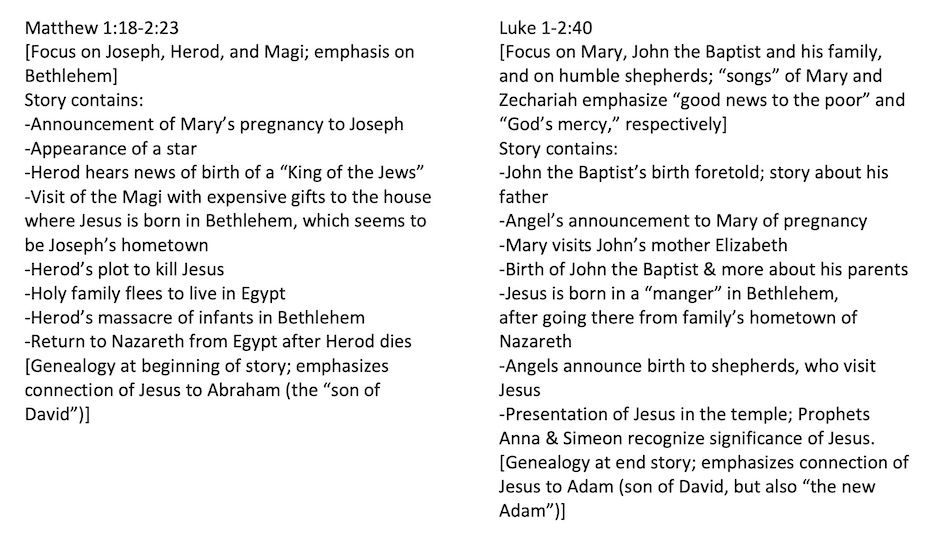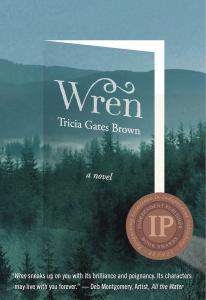
Perhaps my favorite thing about the Christmas season—just a few days away—is reminding myself and others how extraordinary are the stories of Christmas. Among global literature, they stand out as baldly subversive and anti-imperial while at the same time being neutralized. The gospel writers of Matthew and Luke (the only canonical gospels with birth narratives) each in their own way set up a stark confrontation between Jesus and the Roman Caesars, of all things—something no first-century reader would have failed to recognize or to understand the audacity of. But for the most part, the two dramatically different accounts[1] are harmonized and Hallmark-ized in our day and historically—synthesized into one sweet story of strained hospitality and humble beginnings. At least this is how it is presented in the American context where we uncomfortably find ourselves as empire. America is the most influential global empire the world has known. Has this hampered our ability to understand what the Christmas stories are really saying?
The juxtaposition of Luke’s Christmas story is one between a peace brought through violence (the Pax Romana) and one brought through nonviolence by way of Jesus (Lk 1:79; 2:14; 2:29-32). In his birth narrative, Matthew emphasizes Jesus as the new Davidic king (Luke does as well), and then goes on to show how—unlike the unfathomably violent kingdom of David—the “kingdom of God” elucidated by Jesus is about self-giving, all-embracing love and a transformation of consciousness. These narratives offer a raw critique of imperial methods of controlling people, holding onto power, conquering territory, and advancing/protecting the empire’s survival. In Matthew’s somewhat satirical style, this is epitomized by the feckless, duped, and blood-thirsty King Herod—emissary of Rome—who is so afraid of losing his power to a peasant infant that he has all of the babies in Bethlehem slaughtered. In Luke, it is epitomized in the song of the Galilean teen Mary, Jesus’ mother-to-be, who proclaims:
“He has shown strength with his arm; he has scattered the proud in the thoughts of their hearts. He has brought down the powerful from their thrones, and lifted up the lowly; he has filled the hungry with good things, and sent the rich away empty. He has helped his servant Israel, in remembrance of his mercy, according to the promise he made to our ancestors, to Abraham and to his descendants forever” (Luke 1:51-55).
How can we better understand what is going on in these narratives so we can commemorate and celebrate Christmas in all of its subversive power, reflecting on what the story is saying to people about power and peace?
The Meaning of ‘evangelion’
First, let’s look at what the writers were doing in the first place by calling their writings evangelion(the Greek word translated “gospel” or “good news”). So much in that word. Prior to what we now know as the Christian gospels, the word evangelion had not been used to denote an account of a person in the way the gospels are narrative accounts of Jesus’ ministry. Before Christian usage, evangelionwas essentially a news bulletin of the empire, heralding some imperial accomplishment (“good tidings”).[2] For example, after the Romans conquered a new people or marched into a rebellious colony to wreak havoc and murder, or otherwise achieved a military victory, they would post an evangelion (or more commonly plural: evangelia) stating what they had accomplished to advance the empire. There is also at least one instance when the word evangelion was used to announce or commemorate the birthday of Caesar Augustus, who was called “Lord” and “Savior” and “Son of God.” The birth of the Caesar was considered a divine birth.
Moreover, many of the lauds subjects were required to lavish upon the Roman emperor are lauds written about Jesus in the canonical gospels and other New Testament writings. These include: “Caesar is Lord,” “Savior,” and “Son of God,” as listed above. But subjects were also commanded to say of the Emperor: “There is no other name under heaven given to men by which we may be saved,” the very words used to describe Jesus in the book of Acts (4:12; Acts being Part Two of Luke’s gospel, written by the same author). In other words, the gospel writers were definitely subverting the proclamations of the Roman Empire by claiming that the Galilean teacher Jesus (rather than Caesar) was “Lord” and “Savior” and “Son of God”—the same man who had been executed by way of Rome’s favorite execution method, a cross, and who was understood by his followers to be sent by God to proclaim the upside-down values of God’s “kingdom,” calling people to seek this kingdom where the “first will be last, and the last will be first.” According to the gospel writers, Jesus’ portrait of God and of a new way of being, a new consciousness, was the true evangelion or “good news.”
Modern readers are mostly unaware of these parallels. But first-century readers would have been struck by the scandalousness of the gospels and by their confrontation with the claims of the empire. They knew the gospels were dangerous. It should not be surprising that so many first-century Christians were executed. And though the earliest gospel likely wasn’t completed until late in Nero’s life, it shouldn’t shock us that when Nero needed a scapegoat for the devastating burning of Rome, he chose Christians. Christians were hated by the empire because they mocked it, deconstructed it, and subverted it in favor of a radically new “way of peace.”
How far we have come! Many in our day are trying to dress the American empire up as a Christian nation, doing what they can to create a trumped-up theocracy, when this so entirely misses the point of Jesus and the embracing, inclusive, love-based, peacemaking “realm” he called, quite subversively, “the kingdom of God.”

Christmas Stories as Microcosms
The Christmas stories in Matthew and Luke served as preludes, or overtures, to those gospels. They encapsulated in miniature the “good news” of the larger piece and are the lens through which to read it. For readers living under the weight of imperial violence, including systematic economic and religious oppression, spying, collective punishments, rule by fear, and outright aggression in the colonies—violence that during the conflict in mid-first-century Palestine burst into all-out war with accompanying rape and torture and tens of thousands crucified, the Christmas stories would have been emboldening, and in certain ways satirical. If we’re going to understand them at all, we must remember that this context inspired the gospels and their Christmastide overtures, and what it meant for a poor man like Jesus to show us and invite us to participate in the incarnation of the Divine in this world—what it meant for him to be lauded with appellations reserved for the Caesar.
In Luke, an angel appears to shepherds (a particularly low status) to herald the birth of this child Jesus who they call “Savior” and “Lord,” absconding Caesar’s titles—titles imperial subjects were imprisoned and killed for refusing to ascribe to the Emperor. Later, Luke portrays Jesus being recognized in the temple by the prophets Simeon and Anna as the one who would be “the redemption of Jerusalem,” the city those reading the gospel in the decades after its creation knew to be recently decimated by Rome. In Matthew, after a long genealogy linking Jesus to the patriarchs, an angel appears to Joseph explaining to him that Mary, his betrothed, will miraculously give birth to a child who will be the salvation of Israel. Magi from the east come to King Herod, Rome’s client king in Palestine who reckoned himself “King of the Jews,” and the Magi ask, where is the child who has been born “King of the Jews”? The story is a direct challenge to all the colonizing rulers Herod’s character represents. Even the very stars align to direct the Magi to baby Jesus, who they shower with gifts fit for a king: gold, frankincense, and myrrh. In parallel with Israel’s story, the holy family must flee to Egypt to escape Herod’s narcissistic baby-killing rampage in Bethlehem.
I find these Christmas stories both challenging and enlivening. If the Christian tradition just sanctioned the status quo, the “domination system,” it would have nothing interesting to offer. It would be another domination narrative by those seeking to advance their tribe and their egos. But the Christmas stories are microcosms of the gospels of Matthew and Luke, or overtures, and as such reveal a rich counter-narrative to the domination system’s way of violence, oppression, and greed. There is so much to love here!
So too, there is so much that challenges us. I am one who—like many in my country—benefits from being a citizen of history’s most far-reaching empire (this, added to the benefits of my being part of the dominant group in America). Almost all Americans benefit from our country’s geopolitical domination, whether in the form of relatively low prices at the market and gas pump, freedom of movement around the world, or in other ways. It can be so easy to forget how we benefit from the domination of people in our own time and historically. And it can make it hard for us to understand the power of the Christmas stories, the confrontation leveled by Jesus.
This Christmas, may we have our ears tuned to hear its challenging message, and may we invite real understanding and all of the reparative efforts it demands of us. If “the first are to be last, and the last first,” it will be so because we actualize this vision in our own spheres of influence, living out the “way of peace” that Jesus taught us.
[1] The narratives in Matthew and Luke are quite different, as shown by this chart summarizing their key points: [2] To see the Greek passages, visit: http://www.perseus.tufts.edu/hopper/wordfreq?lang=greek&lookup=eu%29agge%2Flion
[2] To see the Greek passages, visit: http://www.perseus.tufts.edu/hopper/wordfreq?lang=greek&lookup=eu%29agge%2Flion
If you liked this article please leave me a comment below, I am interested in your perspective.
Wren, winner of a 2022 Independent Publishers Award Bronze Medal
Winner of the 2022 Independent Publisher Awards Bronze Medal for Regional Fiction; Finalist for the 2022 National Indie Excellence Awards. (2021) Paperback publication of Wren , a novel. “Insightful novel tackles questions of parenthood, marriage, and friendship with finesse and empathy … with striking descriptions of Oregon topography.” —Kirkus Reviews (2018) Audiobook publication of Wren.



















